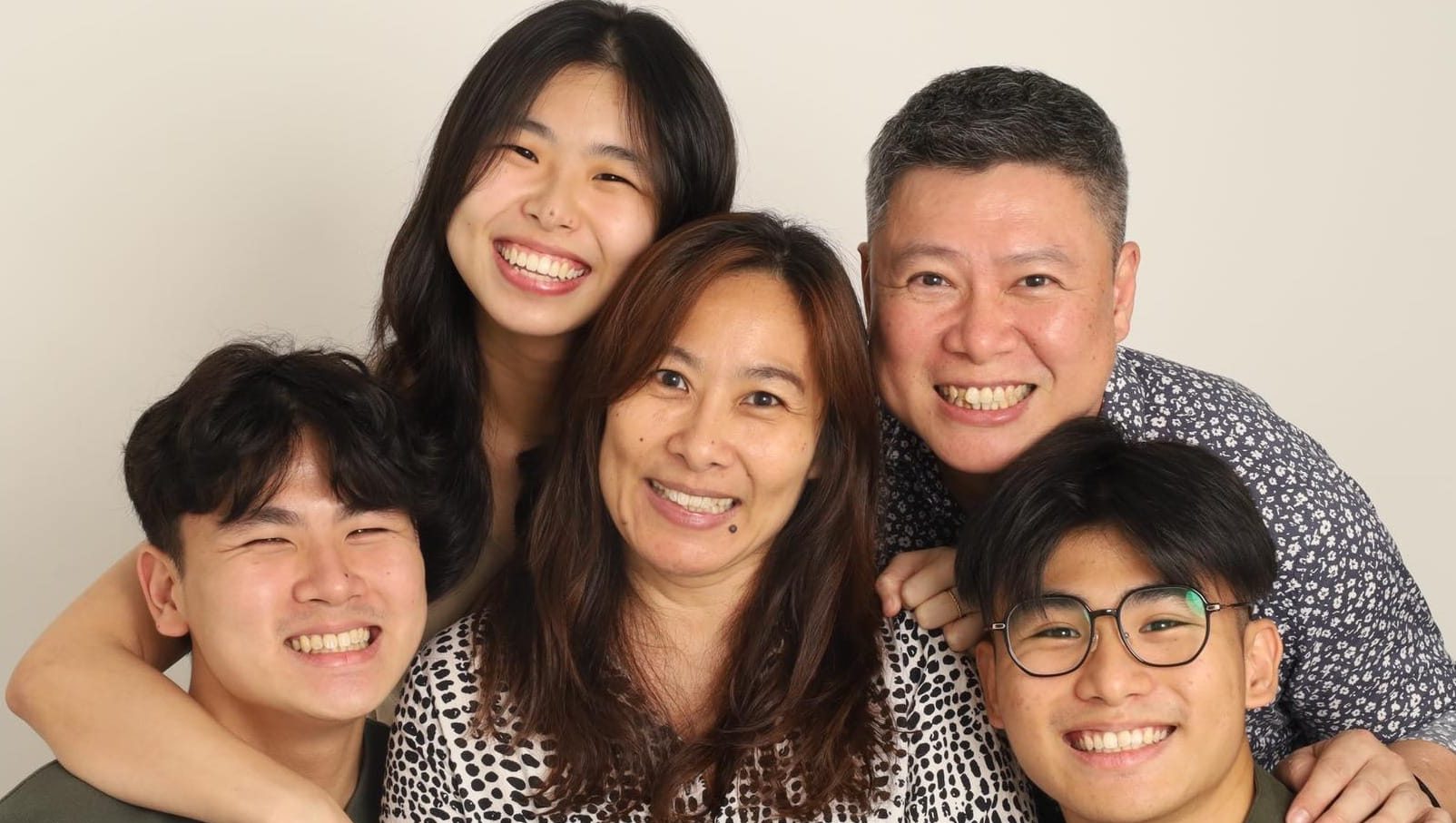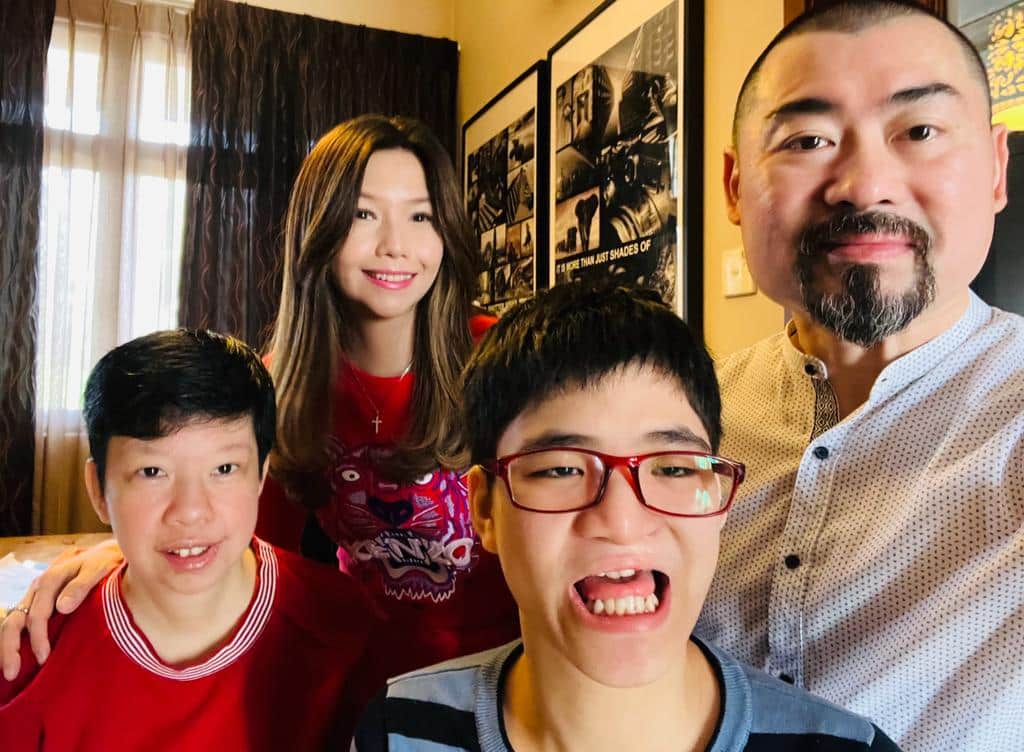“Mr President, can I call you my father?”: The cry of an orphan’s heart that drew Low Siew Ling to Mongolia
by Janice Tai // October 28, 2024, 2:56 pm
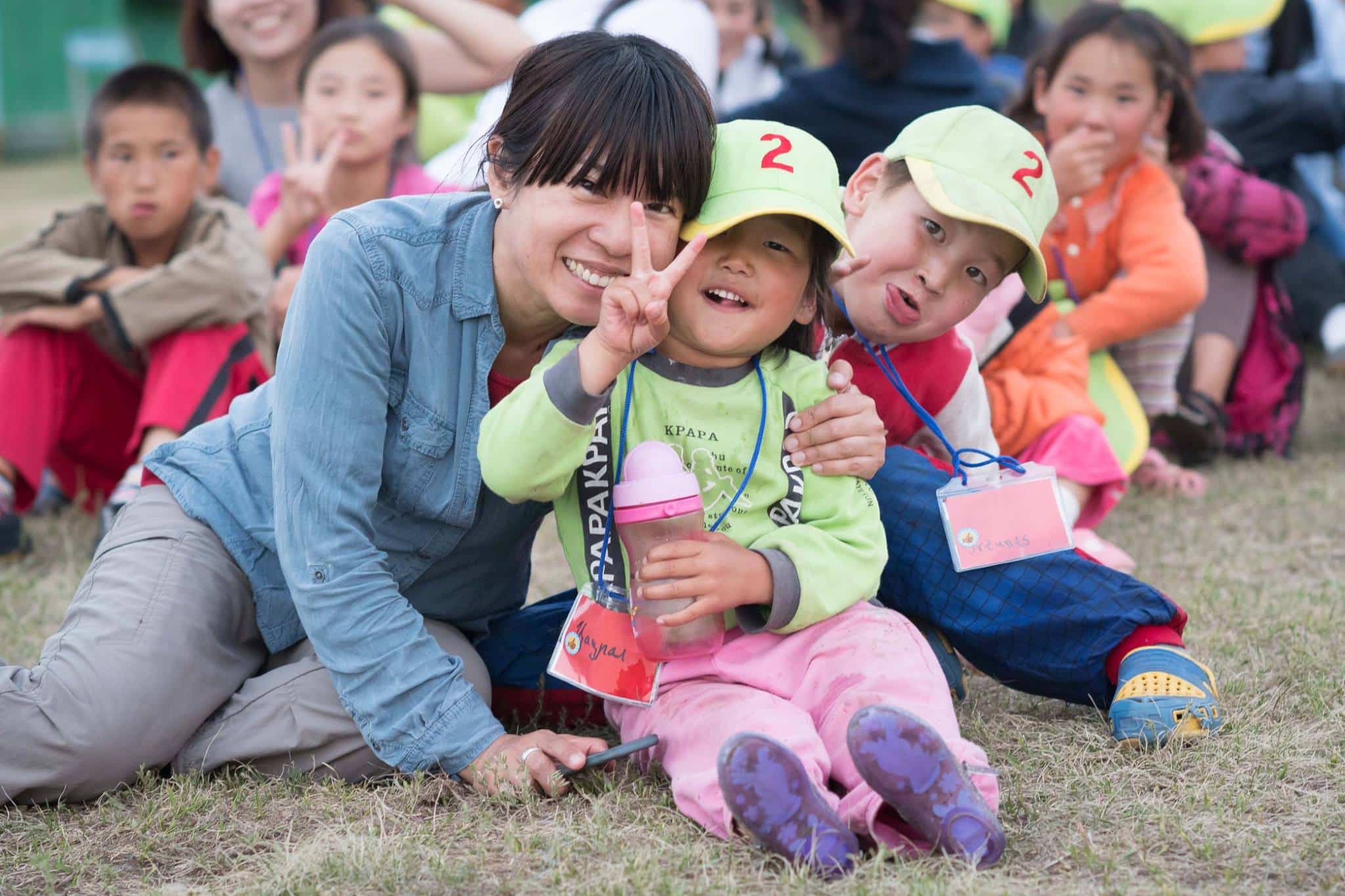
Siew Ling ( who moved to Mongolia for eight years to volunteer to care for orphans) having fun with the Mongolian children at a summer camp in 2016.
In 2010, Singaporean Low Siew Ling moved to Mongolia to be a volunteer, running programmes at a children’s shelter in Ulaanbaatar.
Four years later, the shelter received a letter from the government, requesting for help for a boy from Gobi Desert who needed a cochlear implant as he was born deaf.
“God stirred my heart to help this boy. But we didn’t have the kind of money needed for the implant device,” said Siew Ling, now in her 40s.
As a former investment banker, Siew Ling thought she could tap on her network of friends for help.
However, she also heard God telling her not to ask her contacts or send mass emails to people to ask for donations.
Nonetheless, the achiever in her (having once executed merger and acquisition deals for a living) meant that she could not sit still to wait for the money to appear from somewhere.
“I posted a short note about the boy’s needs on Facebook but no one responded to it, perhaps because that was something God said I shouldn’t do,” said Siew Ling.
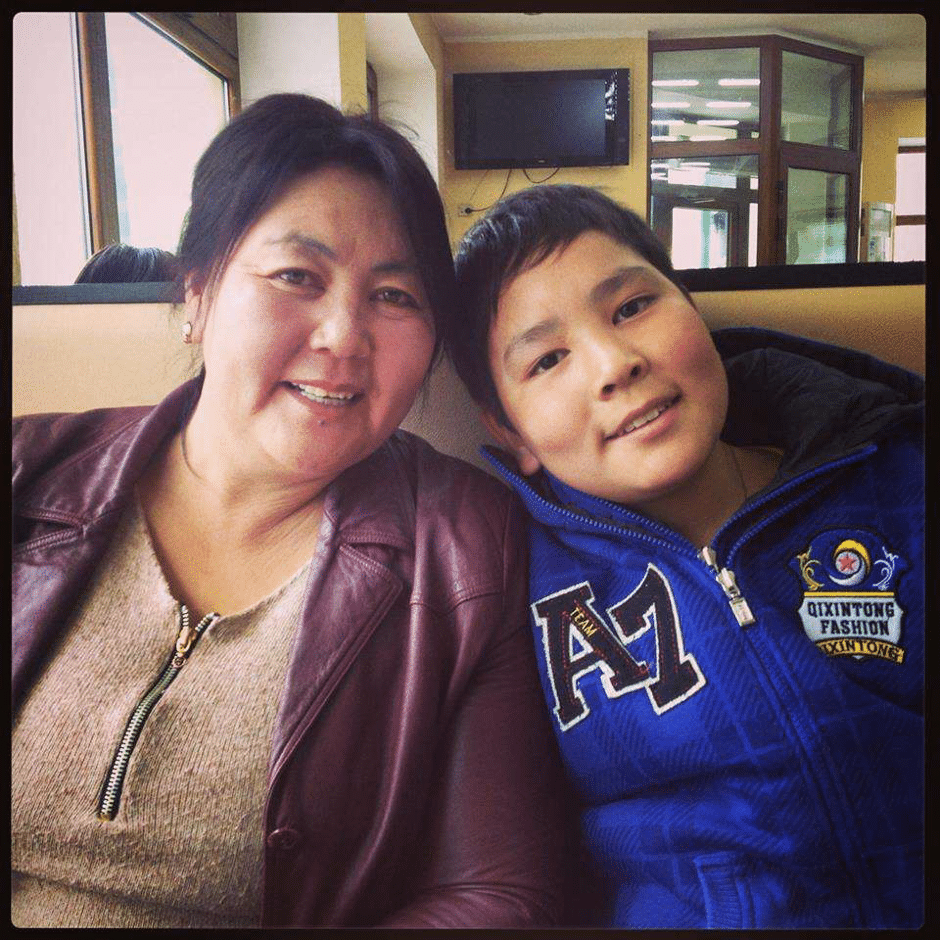
The boy from the Gobi Desert who needed a cochlear implant. His single mother (beside him) had fervently prayed for her son to get the implant that he needed.
It was only a few months later that a Taiwanese friend contacted her for more details. He and his wife shared a passion to help people with hearing difficulties.
The couple ran a marathon to raise the funds for the implant, and returned with three times more than the amount Siew Ling had told them.
“I knew then that God wanted this boy to have the best, not the leftovers.”
“Logically, I thought, ‘Wow God, now I can help three children with the money,'” recalled Siew Ling.
However, after consulting the doctor again, Siew Ling found out that the sum of money he previously quoted was for a basic model. The latest model costs three times as much — exactly the sum that was raised.
The Father heart of God
“I knew then that God wanted this boy to have the best, not the leftovers — like how parents want to give the best to their children,” said Siew Ling.
Two doctors had to be flown into Mongolia to do the surgery as he was the first patient in Asia to receive this latest model of cochlear implant.
Through this episode, Siew Ling caught a glimpse of the Father’s heart for orphans. She also learnt how God’s ways of doing things are higher than Man’s ways of perceived competency, efficiency and practicality.
These are some of the lessons Siew Ling picked up as a missionary in Mongolia. Previously, she lived a glitzy life as an investment banker in Hong Kong, flying business class for work trips almost every week, and enjoying her fair share of branded bags, shoes and five-star hotels.
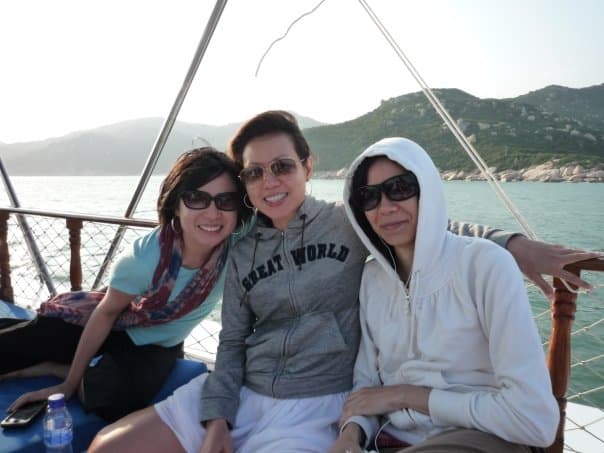
Siew Ling on a yacht trip with her friends in 2009 when she was working as an investment banker in Hong Kong.
She left that world behind after hearing God call her to Mongolia. It was a distinctively different world – one which required her to draw water from the water station or make a fire during winter if she was in the slums.
It was a series of baby steps that led her to make such a major life transition. Since 2007, Siew Ling had visited Mongolia every year on short term mission trips where she helped to run summer camps for the children.
A calling to the orphaned children
Despite having good progression in her career, she felt a deep urge to serve the orphans and the poor.
“I prayed for the desire to go away if it was not from God. But the desire did not go away,” said Siew Ling.
Not knowing what to do, she decided to go on a Sabbatical to study God’s Word at a 10-week apologetics business programme at Oxford University.
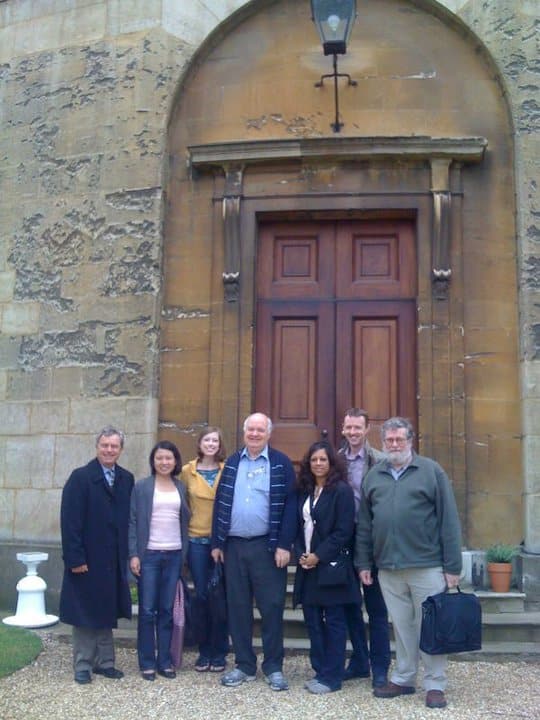
Siew Ling with her course mates at Oxford. In the centre was her professor, renowned Christian apologist John Lennox.
While she was studying, God prompted her to stay longer in Mongolia. So she headed there and volunteered for three months with a non-profit organisation.
“Living in the slums showed me how difficult life was for the locals. I cried a lot during those three months,” said Siew Ling.
When time was up, the desire in her heart to stay in Mongolia to serve the orphans persisted. Her eyes were also opened to how potentially disruptive short term mission trips could be to the children.
“Gifts from foreigners and ad hoc visits don’t heal them — they may even hurt them. For these children who do not have a consistent parent or caregiver presence in their lives, they may develop attachment issues if people go in and out of their lives,” she explained.
Quitting her banking job to be a volunteer
For this reason, Siew Ling decided to quit her investment banking job and move to Mongolia. Fortunately, her former job gave her the financial resources to do so.
In Mongolia, she volunteered to be the liaison and programme director of a children’s shelter that housed about 100 children and teenagers. She saw to the orphans’ medical, educational, social and recreational needs by organising hospital and school visits, summer camps, birthday parties, outings as well as mentoring sessions and tuition.
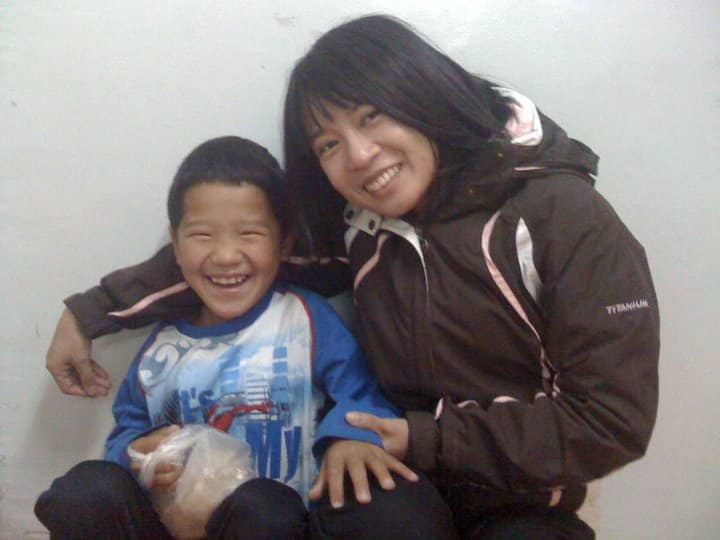
Siew Ling visiting an orphan in hospital in 2010.
The work was fulfilling but challenges also abounded.
In the initial years, she noticed that there were a few children with special needs who would benefit from attending a school that catered to their specific needs. She managed to secure places for them in a private special needs school, but the shelter turned down her request to do so as logistically it would be more difficult to send a few children to a different school.
“I was frustrated but one of my missionary friends reminded me that it was not about the doing, but about focusing on prayer first,” she said.
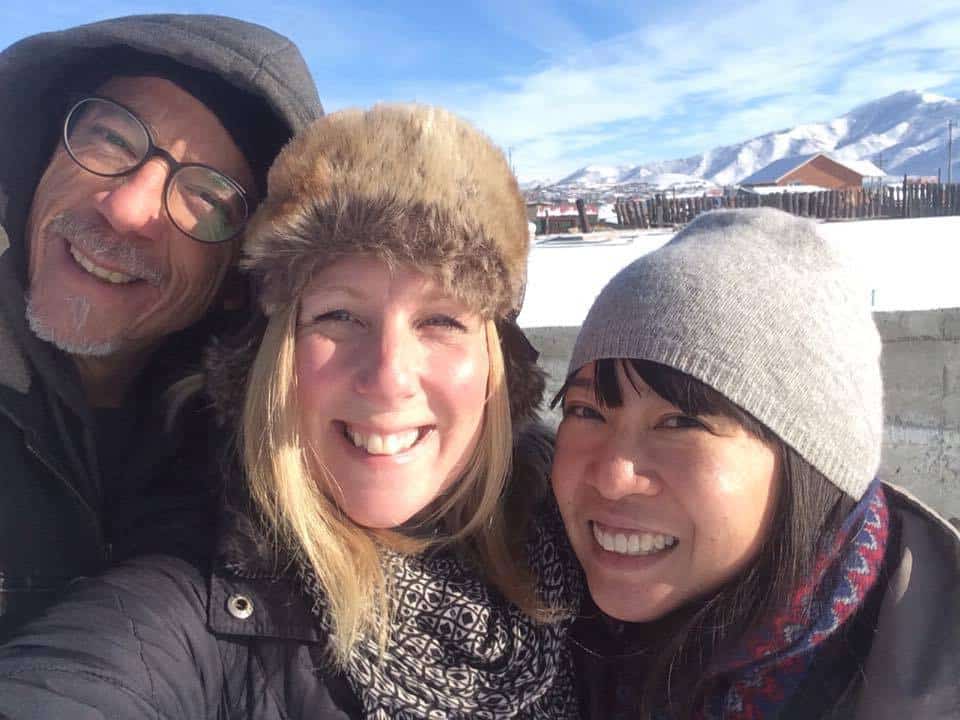
Siew Ling (right) and her fellow missionary friends in Mongolia.
The importance of prayer was brought to the fore during the weeks they brought the children to the countryside for their annual summer camp.
“I was distracted by the logistics, coordination and the planning of activities. But God opened my eyes to experience the unseen,” she said.
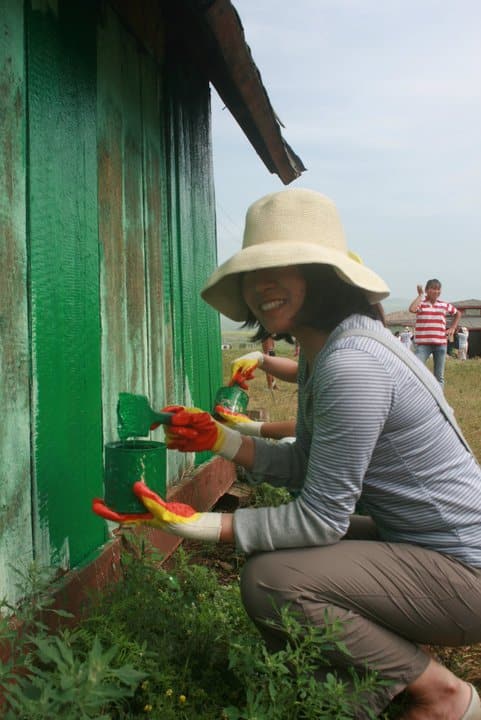
Siew Ling painting one of the huts where the children slept in during summer camp.
She noticed that each time the volunteers fell sick or when the children were unusually rowdy or angry during summer camp, she could see or sense foreign and foreboding spiritual presences in their midst.
“I realised that we shouldn’t just be thinking about the games or the popcorn, but rather double down on prayer in preparation for the camps. Only God can help us with spiritual warfare as it is literally about fighting for the souls of these children,” said Siew Ling.
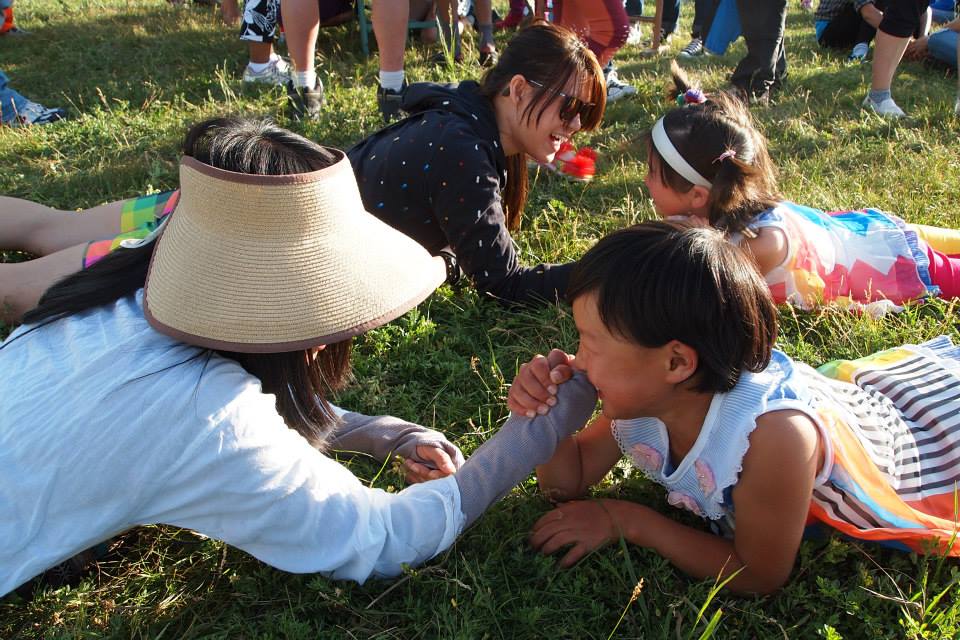
Siew Ling having fun outdoors with the children at a summer camp in 2013.
There was one memorable occasion when God answered her prayers.
One night after campfire, under a sky full of stars, she let a young child go to sleep on her lap. Her older sister sat next to her and shared with her that they have a mother living in the city. The girls’ mother was nearly the same age as Siew Ling.
“I try to be the one who shows up with the birthday cake. But there are too many children out there.”
“I realised these children have parents, though they may not be able to care for them. And that the God who made all those stars above would know their mum. I told God I wanted to know the stories and families of these children,” she said.
After the camp, it was no coincidence that the orphanage director suddenly called Siew Ling to meet the child’s mother. She used to be an alcoholic due to difficult circumstances in her life but later came to know God in prison. The mother had come to the shelter that day to look for a job and to meet her children.
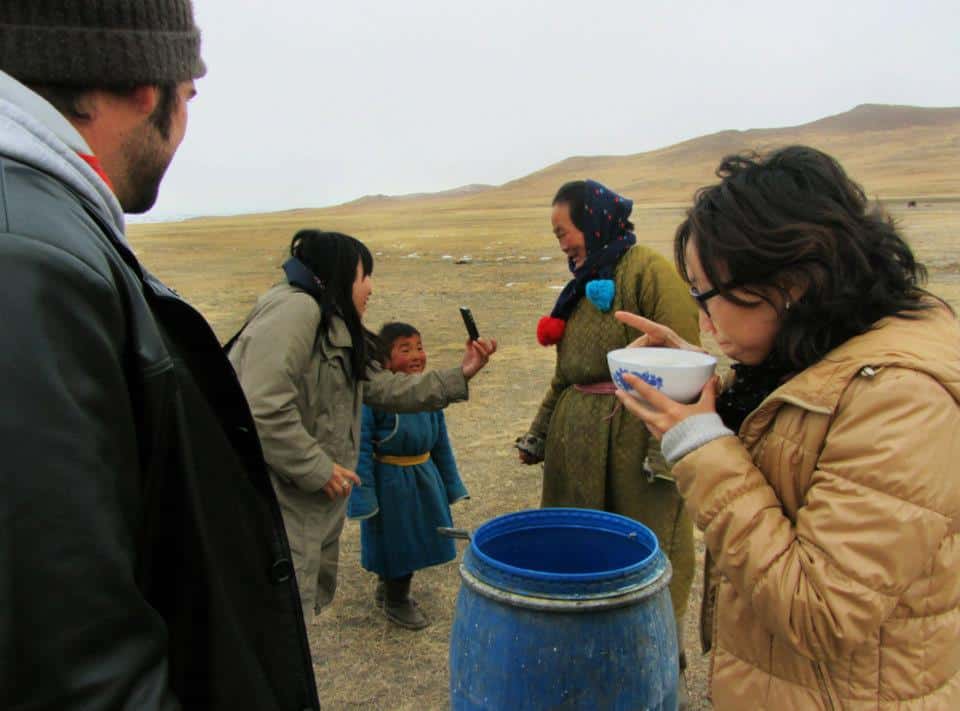
Siew Ling chanced upon a nomadic family when she was out sightseeing in the countryside in 2012.
Many of the children living in the orphanage have at least one surviving parent, but the child cannot be cared for by that parent due to reasons such as abandonment, neglect, child abuse or sexual violence, noted Siew Ling.
To help each child feel seen and loved, Siew Ling makes it a point to celebrate their birthdays.
“I try to be the one who shows up with the birthday cake. But there are too many children out there. I have learnt that nothing could replace the desire for love and attention from their families. Even after having the best birthday outing at the best park or restaurant in town with volunteers, an orphan’s desire is still to have his or her birthday with family,” she said.
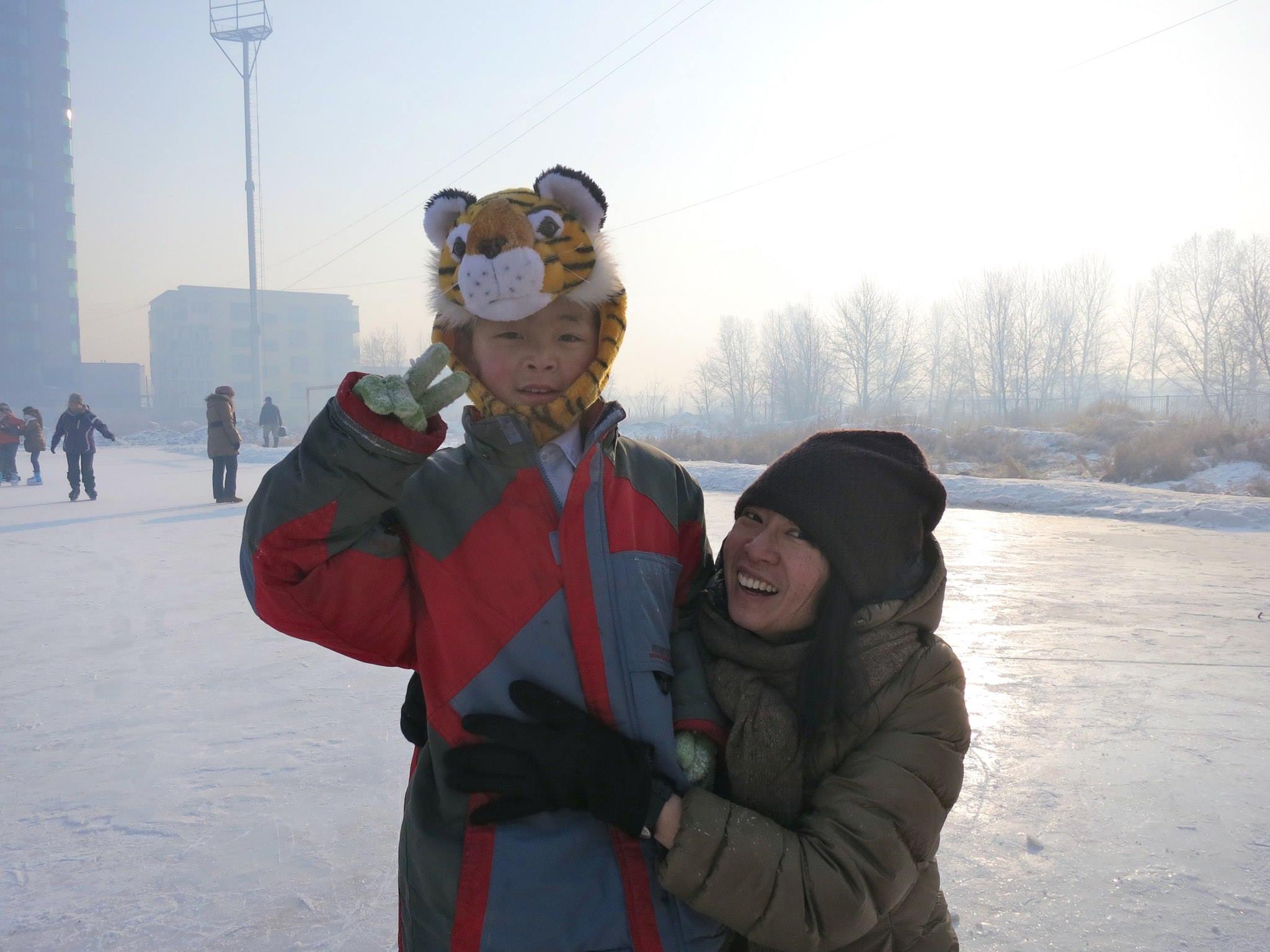
Siew Ling bringing an orphan out for ice skating to celebrate his birthday in 2014.
In lieu of their family, Siew Ling tries to be present in their daily routines of life.
As a single woman, she lives alone in her apartment. Once, after letting a few teenagers stay over at her home, she prepared breakfast for them before they left for school.
“I like this,” a 17-year-old youth remarked to her.
It then dawned on her that such a morning was not a usual one for him. Unlike many other children who have their parents to get breakfast ready for them and see them off for school, this youth did not have an adult constantly by his side as he prepared to go to school every morning.
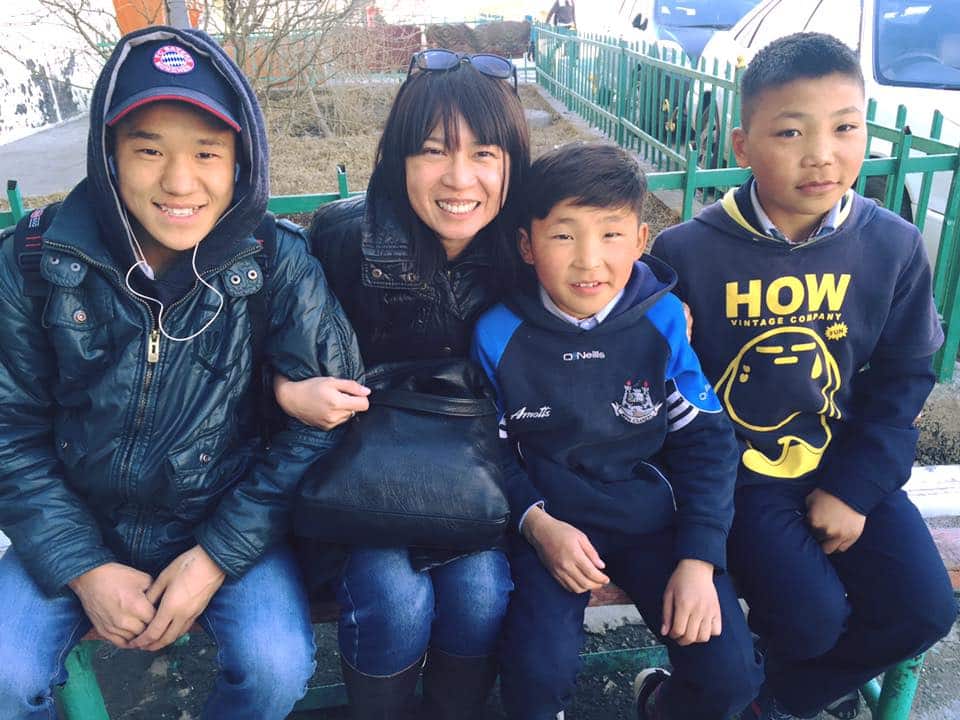
Siew Ling hanging out with the kids in 2016.
That longing for a parent led to one 18-year-old orphan to ask the Mongolian president if he could call him “father”.
“Every year on Children’s Day, the government would organise a competition where children can pen letters to their leaders,” explained Siew Ling.
In 2018, the 18-year-old teenager wrote his letter while hanging out at Siew Ling’s apartment.
She only found out about the contents of the letter after his death. He took his life a few months later. After his death, two other orphans from the shelter also died – one from sickness and the other from a drug overdose.
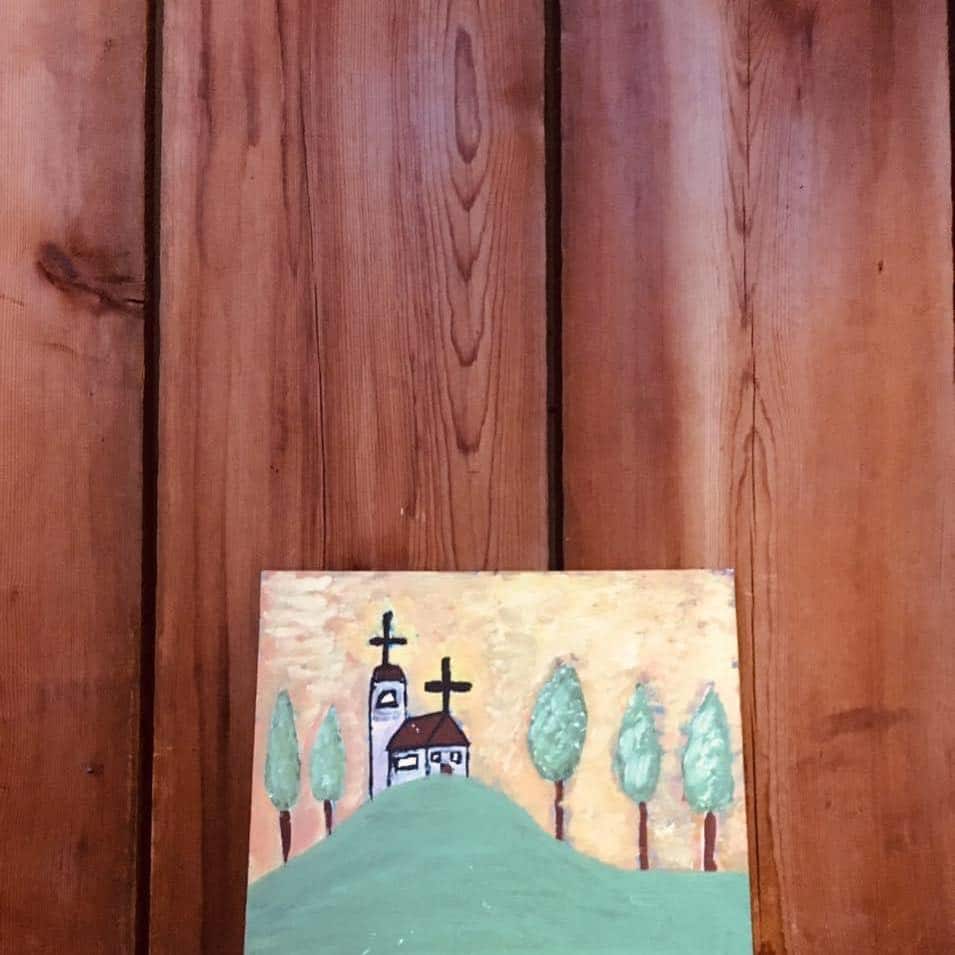
A painting done by the 18-year-old orphan.
“Please forgive me (for)…addressing you as my father. I didn’t have a chance to call anyone as my dad since my childhood,” he wrote in the letter, calling on the President to strengthen support for families in the country.
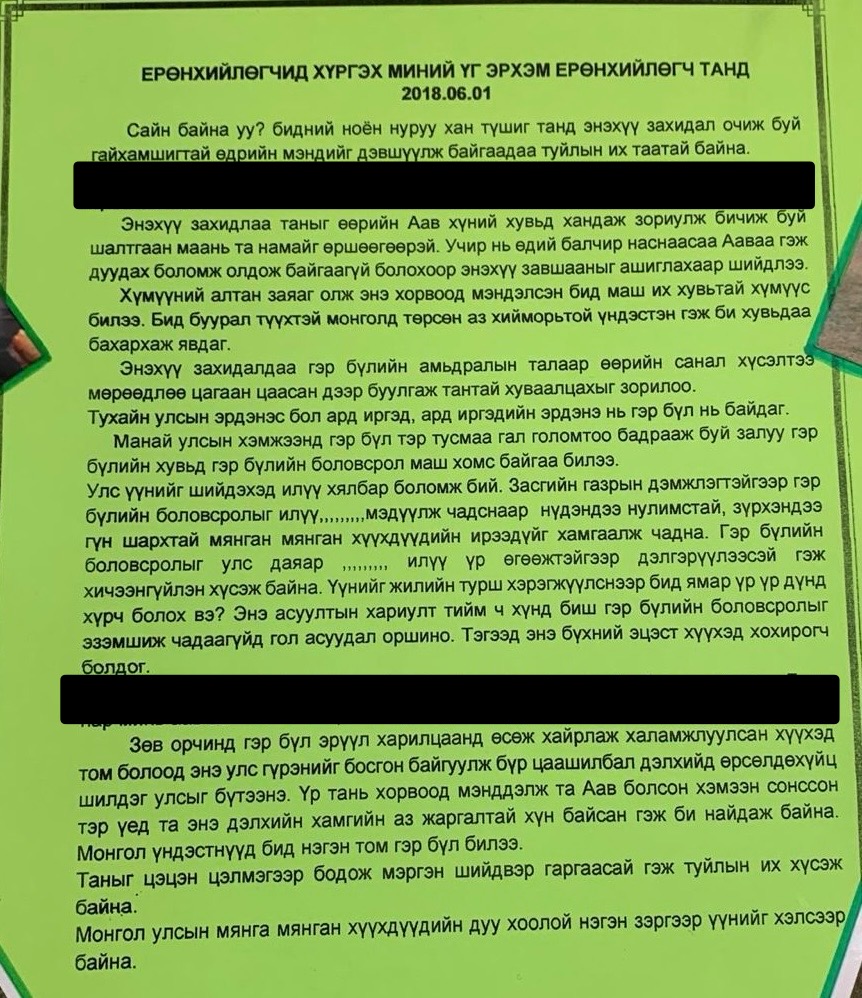
The letter that an 18-year-old orphan in Mongolia wrote to his President.
“He was not a small kid,” said Siew Ling. “We would not expect an 18-year-old to call the President his father. Imagine how much he really wanted to have someone to call his father.”
In 2018, Siew Ling heard God telling her to leave Mongolia and the children. She obeyed and returned to Singapore.

Mongolian children and youths sending Siew Ling off at the airport when she returned to Singapore in 2018.
While still grieving over the death of the orphans and burdened with other disappointments, Siew Ling returned home after living in Mongolia for eight years. She was burnt out and emotionally exhausted.
Looking back, she wondered why and how she ended up having a particular burden for the orphans.
As she posed this question to God, He brought to her mind a memory from her much younger days. Then, she was cared for by a nanny and her family.
“In that memory, I was playing the piano but my parents were not there. As a child, my parents and nanny loved me a lot. But in that moment, I felt a sense of being ‘abandoned’. If I could feel this way, what more those children who do not have parents present in their lives?
“All of us are orphans who want to be known and loved,” said Siew Ling.
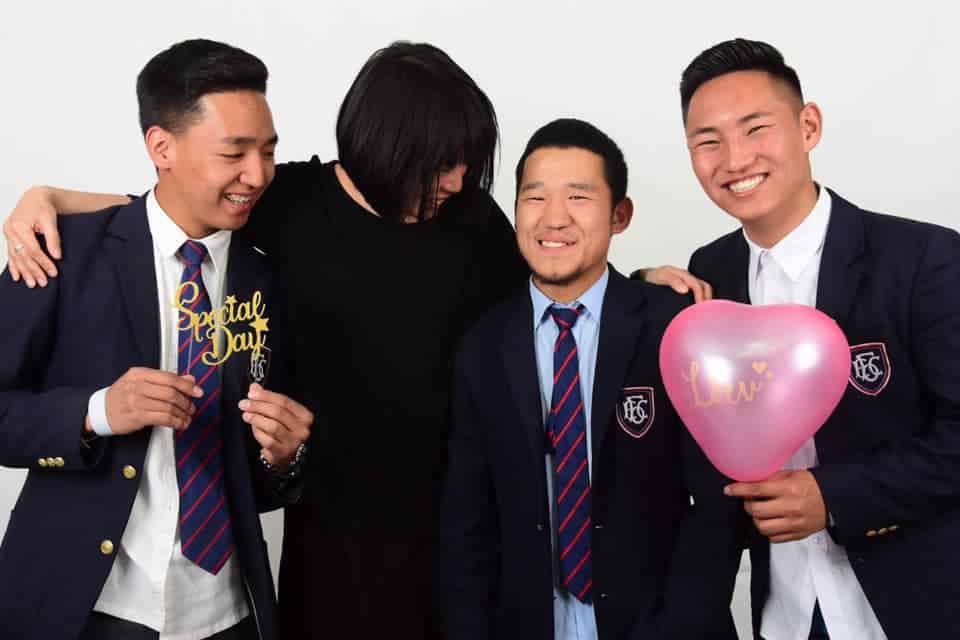
Siew Ling flew back to Mongolia for a visit in 2019 and took photos with her youths who have just graduated from high school.
Interestingly, it turned out that it was an orphan who nudged Siew Ling to find out more about the Christian faith.
In 2002, Siew Ling was not a believer but she volunteered with a Christian charity in Cambodia for a month. During her trip, she visited several Christian orphanages and stayed with missionaries. Everyone knew she was not a Christian yet, and no one “pressurised” her to believe in the faith.
During a visit to an orphanage, a cheerful and confident Cambodian orphan girl asked her why she was not a believer. That question got her thinking and Siew Ling decided to explore the faith when she returned back to Singapore. Gradually, she became a Christian.
When she moved back to Singapore in 2018, Siew Ling took up a Master’s in social work to equip herself further in the sector.
Her time with the orphans in Mongolia reinforced her belief that family-based care, instead of institutional care, is more effective in meeting the deepest needs of the children’s hearts.
As she looked for alternative care options available for vulnerable children in Singapore, she learnt about the work of Home for Good Singapore. It is a registered charity that supports a network of foster parents, adoptive parents and volunteers who are passionate about helping vulnerable children, youths and families from all backgrounds.
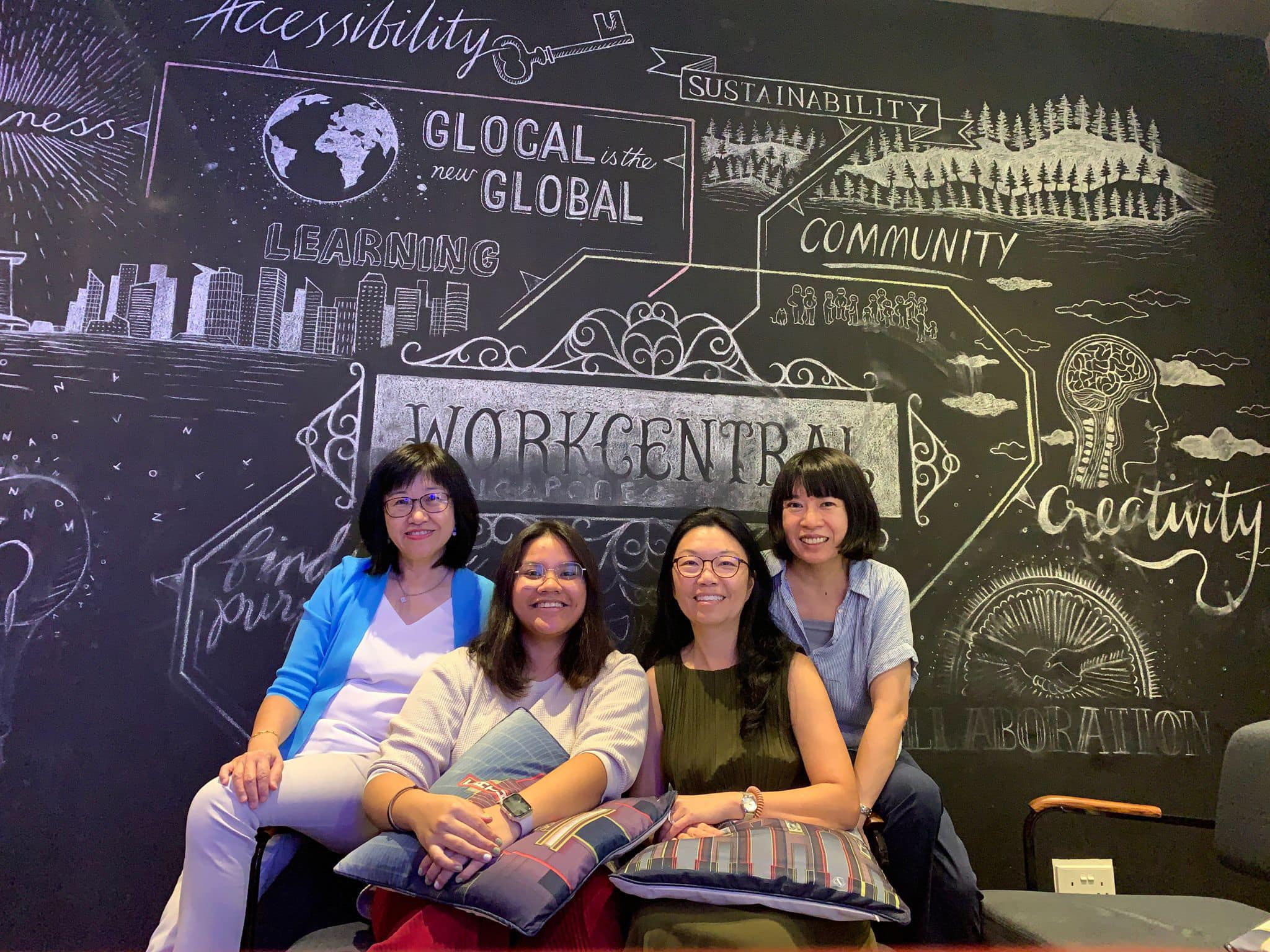
Siew Ling with the team from Home for Good in 2023 at an event to raise awareness about adoption.
Siew Ling is currently a volunteer and board member with Home for Good, as well as the regional co-ordinator of global Christian movement World Without Orphans, which champions family-based care.
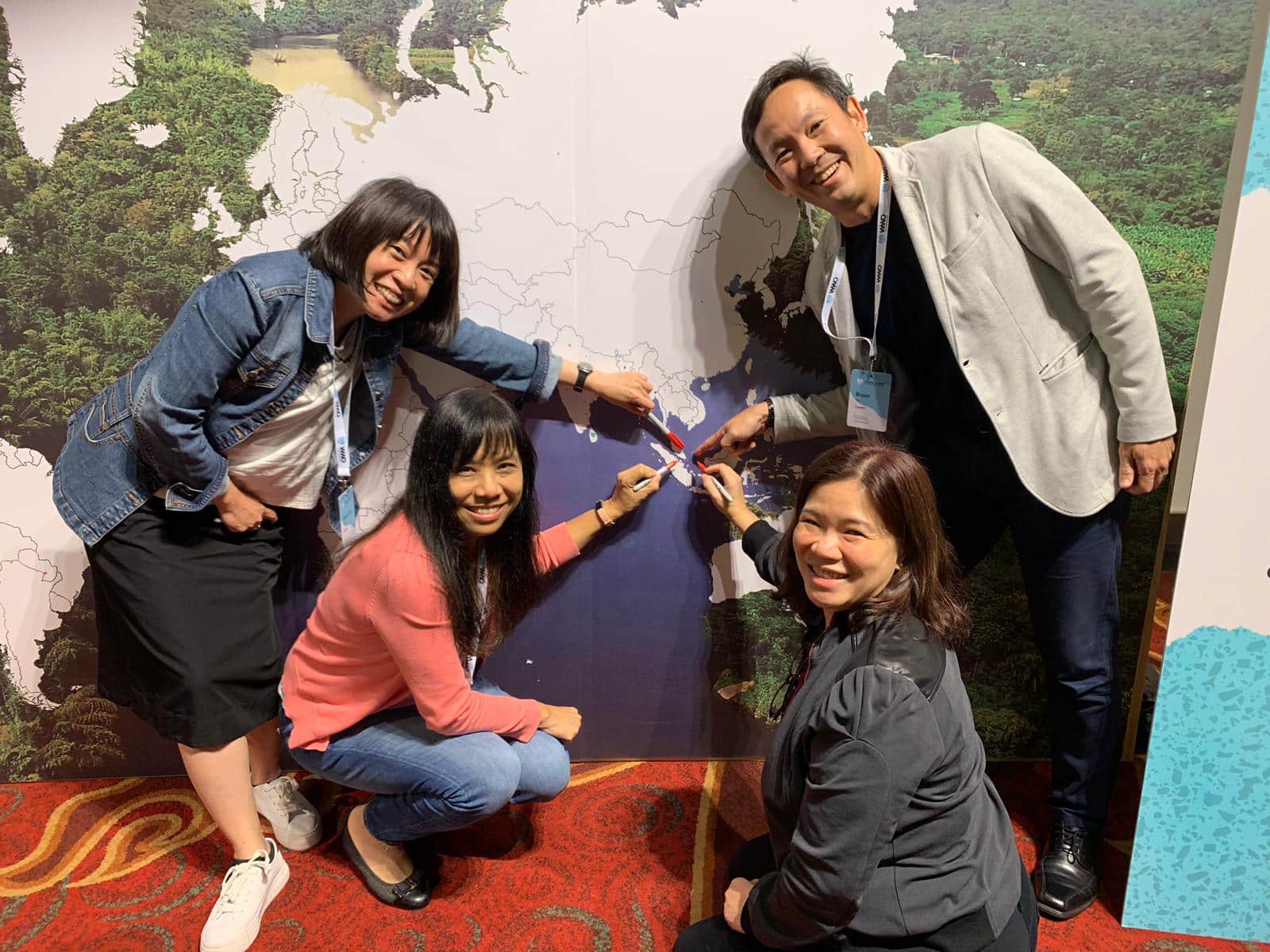
Siew Ling at an World Without Orphans conference with her friends from Home for Good and Centre for Fathering.
“It is clear from God’s Word that He cares for the orphans. When we care for them, we get to know better who God is and we make Him known to them through our love,” said Siew Ling.
A fair number of orphans have come to know Jesus through her previous work in the shelter, though she and her team do not actively preach to them.
Siew Ling thinks that the Church can and should do more in this space.
“We always say that we are all family in the Church. So how can the Church really be a family to the orphans? What do we need to do about it?”
Do you have a heart for vulnerable children and families?
To commemorate Orphan Sunday in Singapore (November 10, 2024), World Without Orphans – Southeast Asia and Home for Good, Singapore have come together with various partners to organise a series of events.
These include:
- A 13-day devotional (November 1–13)
- Orphan Sunday services (November 10)
- A Worship & Prayer Night (November 11)
- Roundtables for churches and organisations (November 12-13)
To find out how you can join in, click on the links above for more details.
RELATED STORIES:
I was a failure but a family gave me a home; today I’m the National Director of YWAM Singapore
How a victim of childhood abuse found the healing to minister to others in Thailand
We are an independent, non-profit organisation that relies on the generosity of our readers, such as yourself, to continue serving the kingdom. Every dollar donated goes directly back into our editorial coverage.
Would you consider partnering with us in our kingdom work by supporting us financially, either as a one-off donation, or a recurring pledge?
Support Salt&Light
